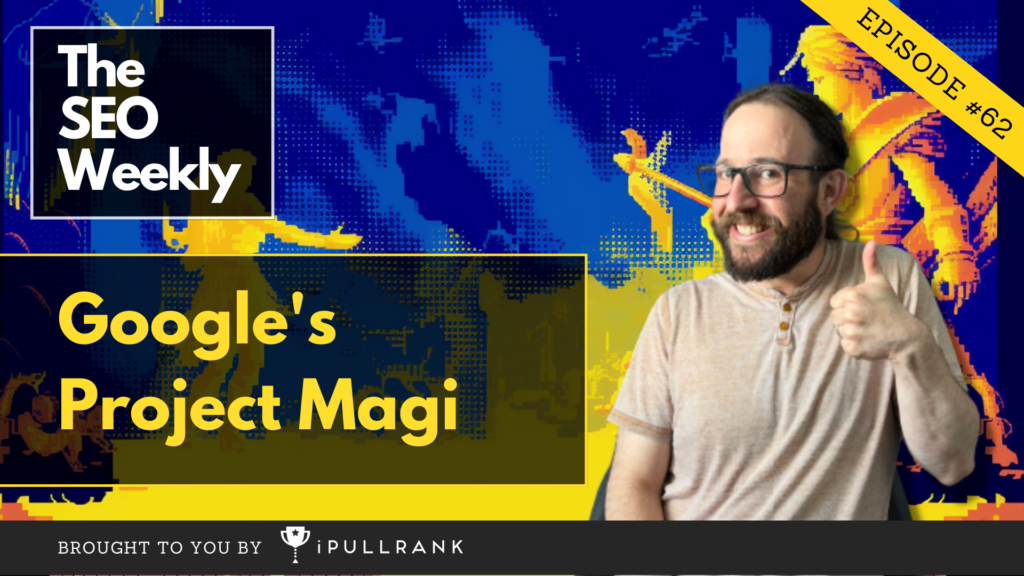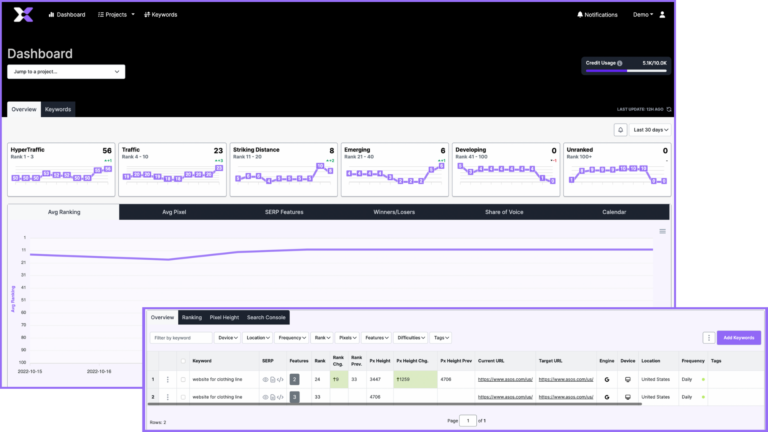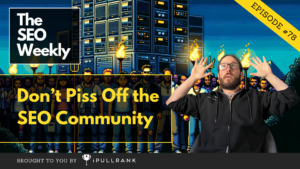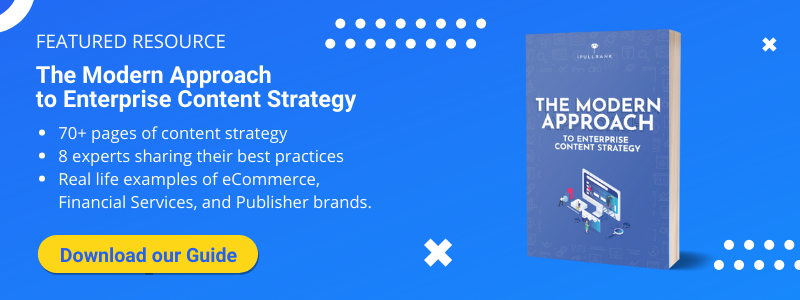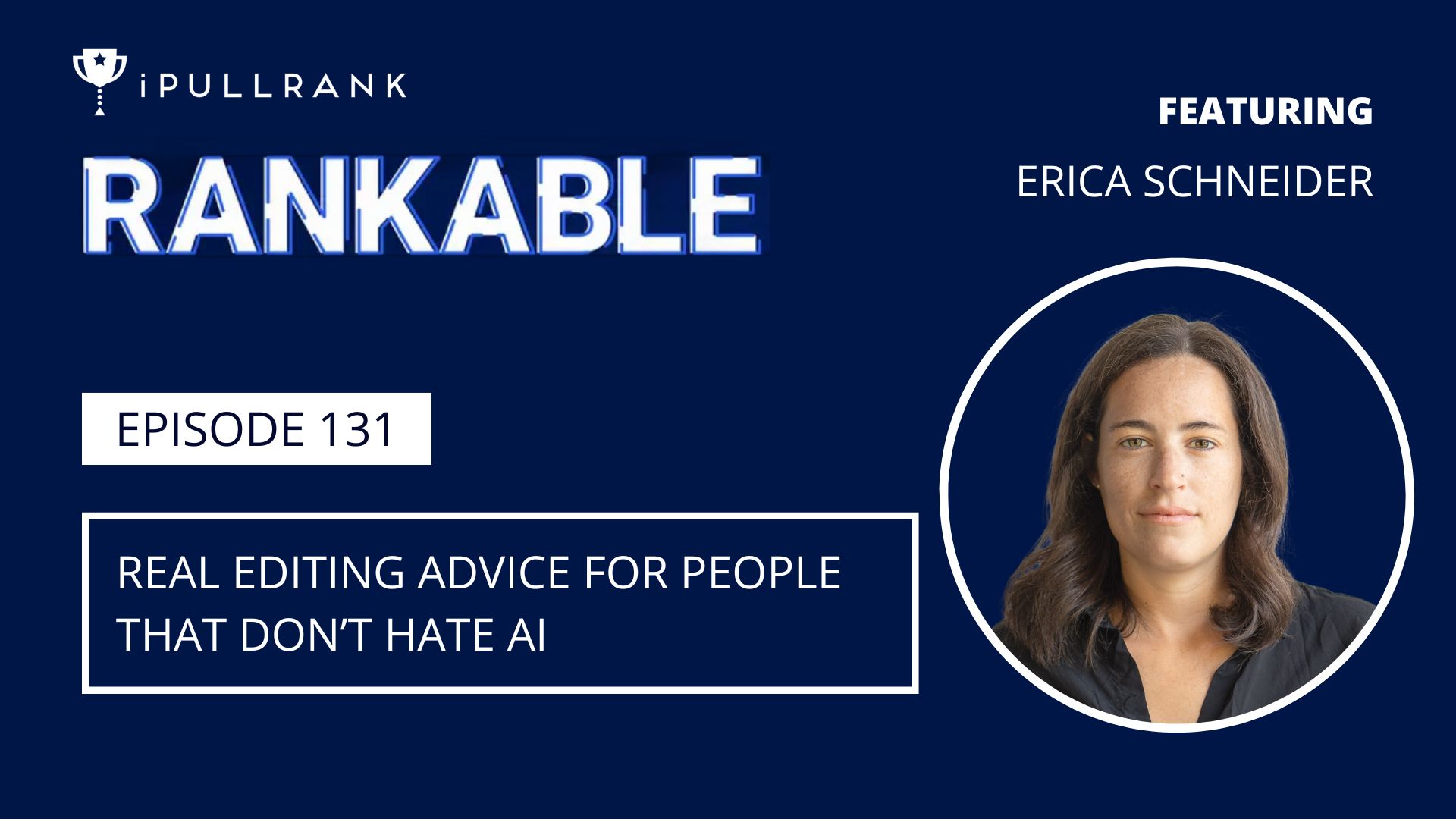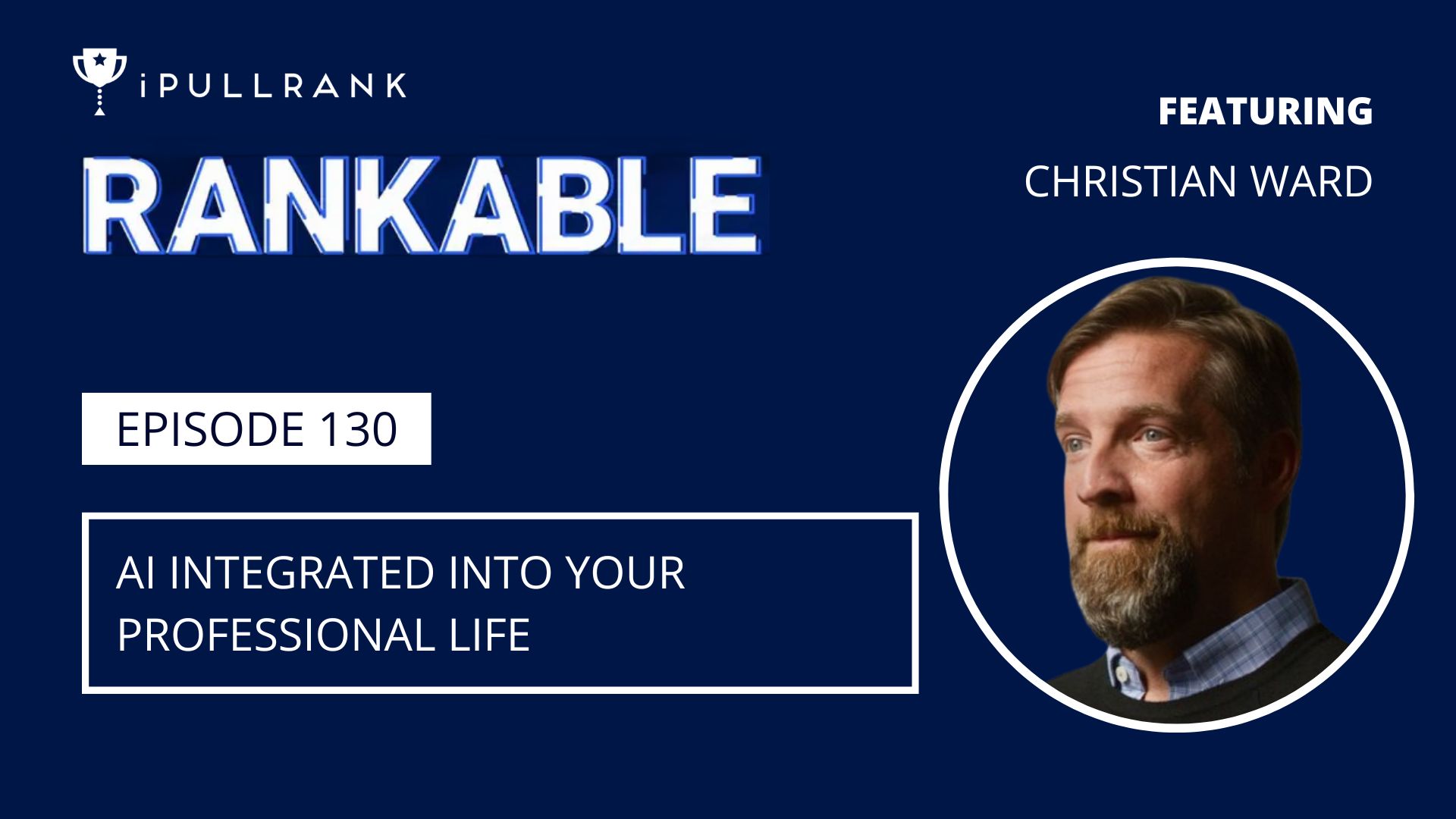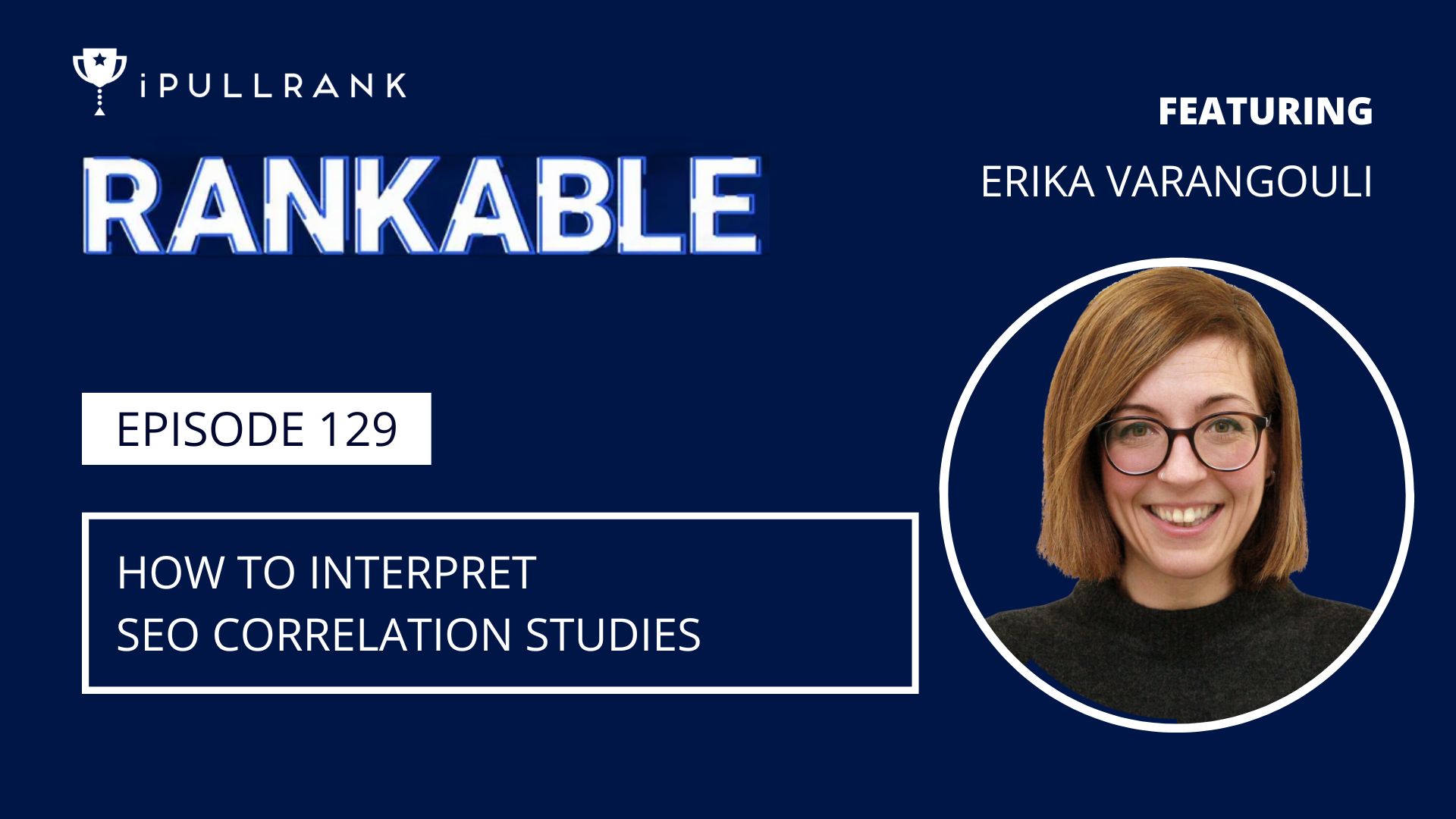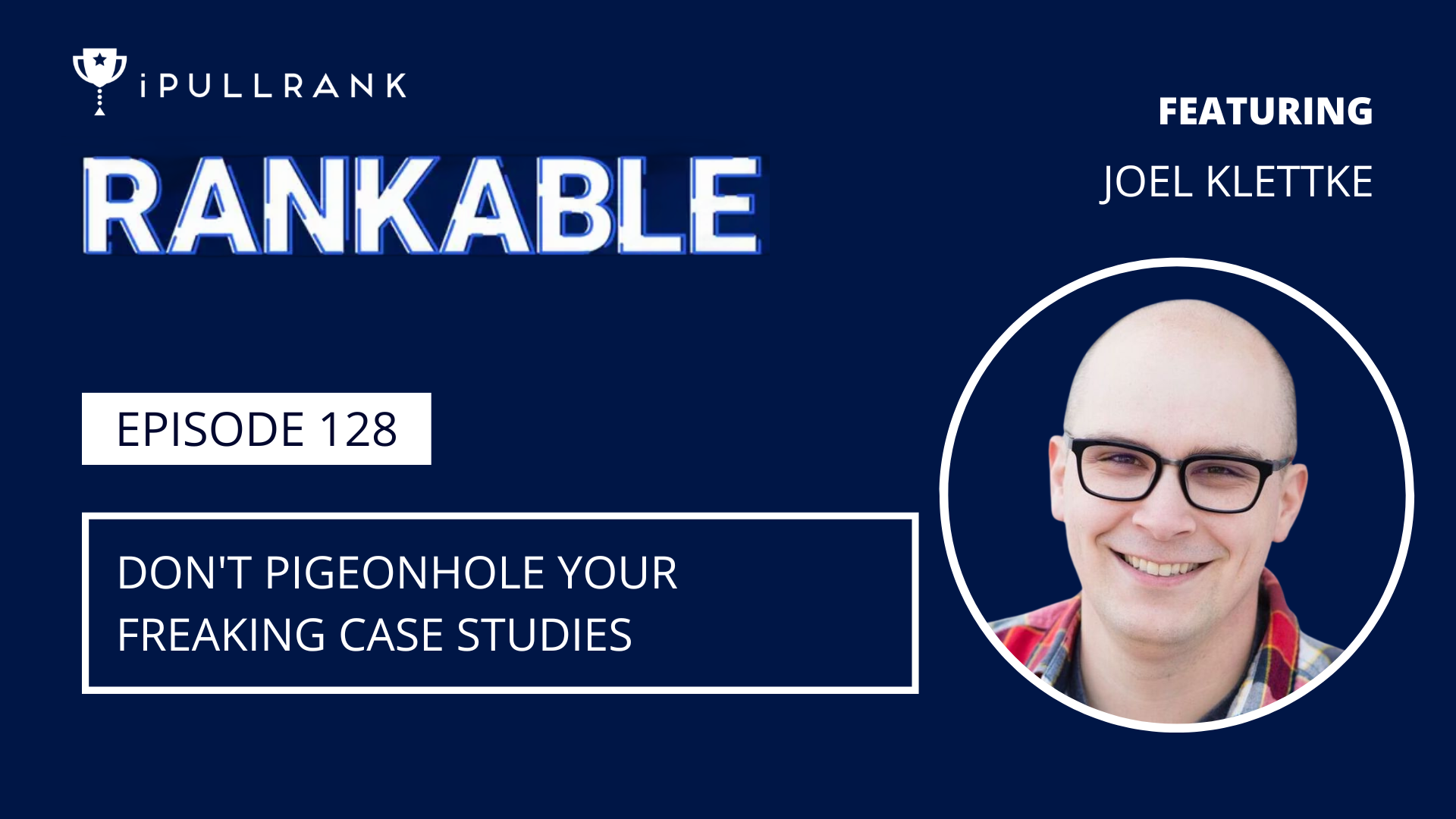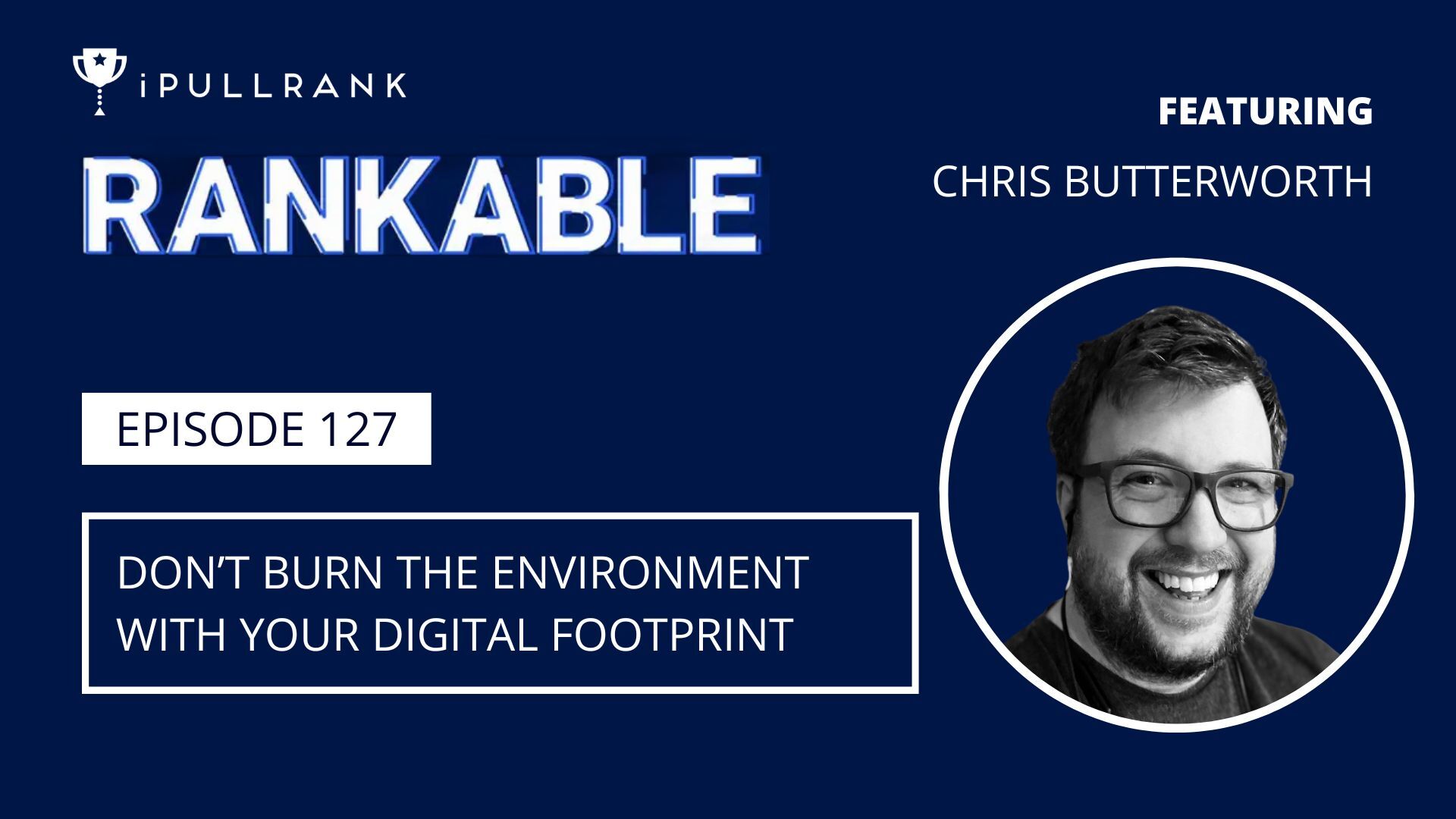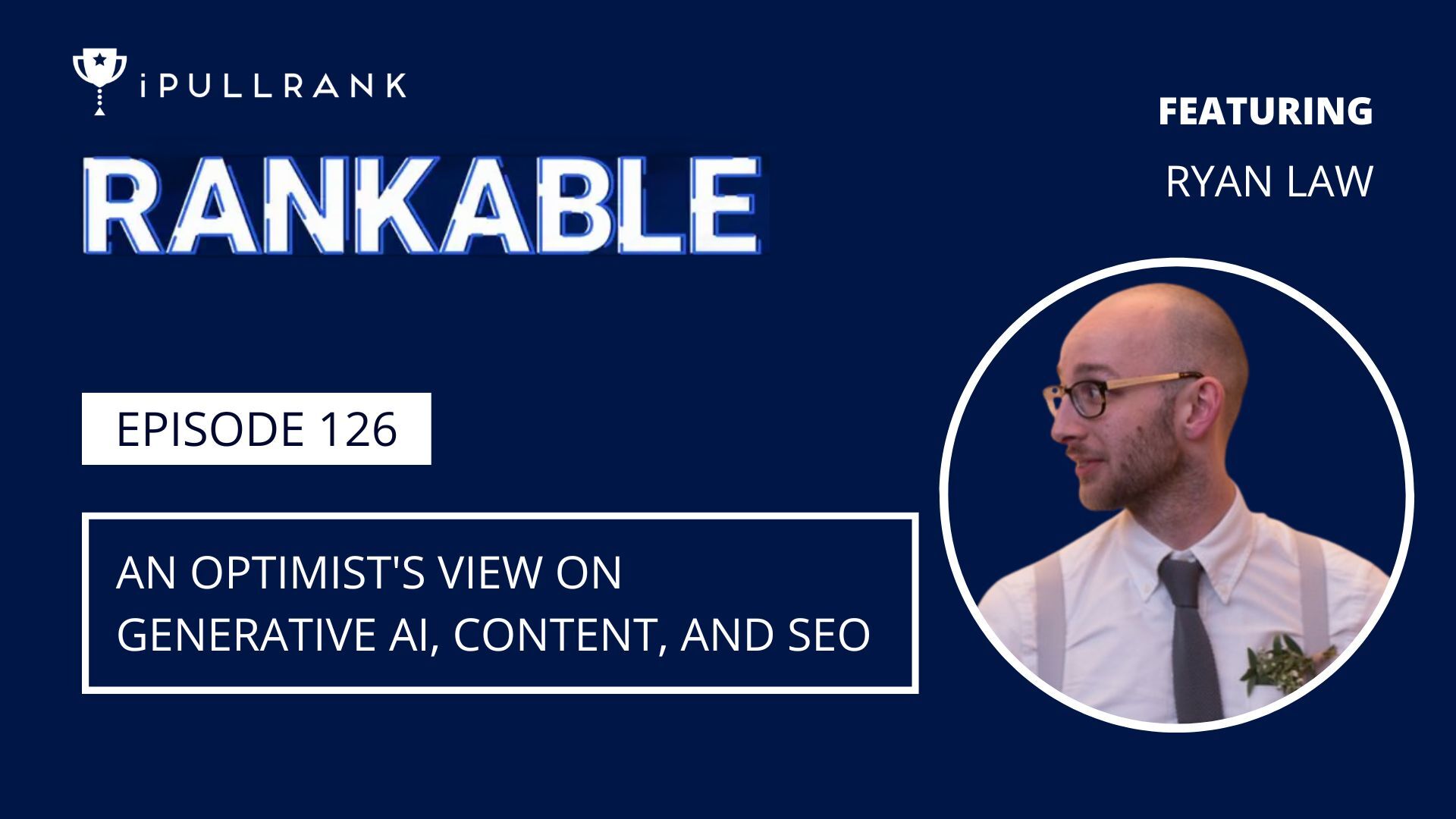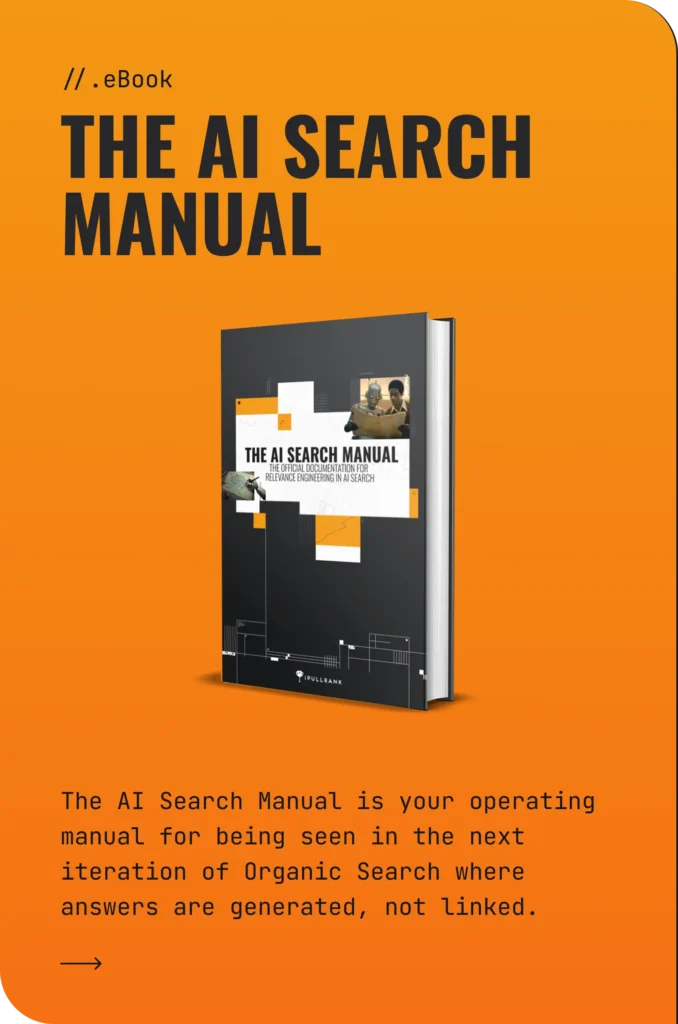The SEO Weekly
Google's Project Magi - Episode 62
Where queries are weird, advice is controversial, and everything depends.
In this week’s episode, we cover Google’s new search engine Project Magi, the reviews system update, and an algorithm update recovery tactics Twitter thread.
We also tackle an experiment on link priority, NLP for SEO, and ExactScience – a new rank tracking tool by iPullRank.
Also:
- Robots.txt files
- Finding trending keywords for SEO
- Using generative AI for SEO
Host: Garrett Sussman | Demand Generation Manager
LAST CHANCE: GET YOUR IPULLRANK DATA-BACKED KEYWORD PORTFOLIO
$10,000 ($15K after 12/16)
First Come, First Served
Included in the offer:
- A Refreshed Data-Backed Keyword Portfolio and Presentation (up to 5,000 keywords)
- Topic Cluster Targeting
- Content Ideation Targeting For Each Cluster
- 3 Monthly Snapshots of iPullRank’s New Rank Tracker – ExactScience
Show notes / References:
Google/SERP Updates:
- Google Devising Radical Search Changes to Beat Back A.I. Rivals – New York Times – Nico Grant
- April 2023 Reviews Update – Google
- How To Write High Quality Reviews – Google
- Understanding Google’s March 2023 Core Algorithm Update – Semrush – Nicole Ponce
- The 2022 webspam report is here! – Google
- Video Thumbnails Only for Featured Video Pages – Google
- Analyzing Search performance data with bubble charts – Daniel Waisberg – Google
AI Generation and SEO:
- Bard Experiments Update Page – Google
- Bard’s capabilities in math and logic – Jack Krawczyk
- Best Practices for Utilizing Generative AI for SEO ft Kristin Tynski – Voices of Search Podcast
- NLP: How is it useful in SEO? – Jess Peck – OnCrawl
SEO Twitter:
- Building an SEO Roadmap – Antoine Eripret
- Google Recovery Tactics Thread – Tony Hill
General SEO:
- Robots.txt Files: Directives, Examples, and Use Cases – Michael Glavac – iPullRank
- Healthline’s Content Anatomy: 5 SEO Insights to Learn From – Michal Pecánek – Ahrefs
- How Google’s Selective Link Priority Impacts SEO (2023 Study) – Cyrus Shepard – Zyppy
- How to find trending keywords for SEO campaigns – Abby Gleason – Wix
Tools:
- ExactScience – John Murch
Transcript:
On The SEO Weekly, 2023 April Review: System Update, Product Reviews, Business Reviews.
Typically kept separately, but apparently, Google is merging them all together. What does that mean?
Cyrus Shepherd conducted a fascinating study on how link priority impacts SEO. Essentially, if you have the same link and multiple different anchors, how does Google decide which is the most important to focus on?
There’s also a captivating podcast interview with Kristin Tynski of Fractl on the Voices of Search Podcast, discussing generative AI and how to actually use ChatGPT and Open AI for your SEO purposes.
Additionally, there’s an awesome Twitter thread by none other than Tony Hill, detailing every step he took to recover from a really painful Google algorithm update. He shares everything he did, encompassing 20-30 small steps, and demonstrates that when you put in the time, it all works.
That and so much more on The SEO Weekly:
Welcome back to The SEO Weekly, where queries are weird, advice is controversial, and everything depends.
I’m your host, Garrett Sussman, of iPullRank, and every week, I cover everything going on in the world of SEO. We’re talking Google updates, blog posts, Bing, ChatGPT, all that AI goodness, webinars, tools, features, Twitter, LinkedIn – you name it, I’m on it.
If you’re into this, please subscribe to our YouTube channel, give us a like, share on social media, and leave me a comment. I genuinely appreciate it. Let’s dive in.
This week, Project Magi – what the heck is it? The New York Times reported on some internal documents this past Sunday, revealing how back in March, Google was alarmed when they discovered that Samsung, after 12 years of using Google as their primary search engine for all their phones and digital devices, was considering switching to Bing.
They’re still in negotiations, so it could go either way, but this is what kickstarted all the AI developments. Internally, Google speculated that Bing’s AI features might be the reason for Samsung’s potential move.
In response, they decided to develop Project Magi, a brand new search engine product based on AI that’s much more personalized. It’s still unclear when it will roll out, but this feels like a really big deal. Google will also be implementing some sort of AI-related features into their normal search engine.
Will this ultimately impact SEO? We don’t know yet.
Will Google be competing against itself with two different search engines? We don’t know that either.
It’s really confusing, but it’s fascinating and could potentially shake up the market significantly.
Now, Google has taken some shots at Bing, indicating with Open AI that they approach AI more responsibly, asserting that it’s dangerous to roll out AI without appropriate safety guardrails in terms of what people can do with generative AI.
There are concerns around the potential for creating harmful, poisonous, and dangerous chemicals using AI, which is admittedly scary stuff. But it’s a big deal in the world of SEO. When it will impact us, we don’t know, but it’s worth noting.
Moving on, Google did something really interesting last Wednesday: they launched another algorithm update called the 2023 April Review System Update. Rolled out on Wednesday and still ongoing, it’s unclear when it will be completed. What’s particularly interesting about this update is that, historically, Google has kept product reviews and normal business service reviews separate. Business reviews are local SEO reviews for restaurants, dentist offices, law firms, and similar services, while product reviews are for actual products.
Now, the reviews they’re talking about are not entirely clear. Are they referring to in-depth editorial reviews, or are they talking about actual Google reviews or reviews left on Yelp? They do seem to clarify that they’re not talking about third-party reviews on platforms like Yelp. However, you do have some in-depth Amazon reviews. They included a new documentation article about writing high-quality reviews, offering all the details and using E-E-A-T (Experience, Expertise, Authority, and Trustworthiness) to demonstrate your experience and provide evidence. But it’s not specifically for products or services. It will be really interesting to see how this ultimately impacts the SERPs.
Having worked for an online review company in the past, differentiating between the two types of reviews has always been frustrating due to the various mechanisms for acquiring those reviews. As you look through and search for the “best swimming pools,” for instance, the top 10 lists, thin regurgitations, comparison pages, deep-dive editorials, or affiliate blog posts all count as review content. Everything will be impacted, and I’m very interested to see how this plays out. In fact, I discussed it a bit more when I joined Nikki Halliwell and Nicole Ponce on the Semrush Twitter spaces last week, where we talked about the March core update and its aftermath. Let me know in the comments if this is something that has impacted you, or if you’re already seeing any impact, or how you think about review content because it’s fascinating to me.
Last week, Google also released their 2022 Web Spam Report, showcasing how they used Spam Brain to remove 50 times more link spam sites and 10 times more sites affected by hacking. It’s great and everything, but unfortunately, with generative AI, it feels like we’re going to continue to see more spam thrown our way, and I hope Google can keep up. I feel like I’ve had good experiences on search in terms of avoiding spammy and low-quality content, but it’s going to keep coming. What do you think? Have you been affected by spam or have you been hacked? It’s not fun when it happens to you.
One interesting move that came up last week is Google’s announcement that video thumbnails appearing in search results will only show up if the video is the main content on the page. If it’s a longer article with just a video inserted, you won’t see the video content in the thumbnail. It’s mainly for platforms like YouTube and others, but isn’t it interesting that it works for YouTube and not many other sites? It’s the primary complaint, and to be honest, I don’t entirely agree with the move because, at times, it’s helpful to see visual video content in addition to a written blog post. I don’t know if I agree with Google; we’ll see what happens as they’ve done lots of testing, but that is rolling out and starting to happen.
It’s cool to see that there’s some movement on BERT, still separate from Google, but Product Principal Jack Krawczyk made an announcement about how they’ve added new experiments and updates. As they iterate on BERT to make it better, we’ll get to see some of those details. One thing he mentioned on Twitter is they added more advanced levels of PALM, an advanced algorithm that allows for logic improvements in coding and more sophisticated math capabilities. As a result, BERT should be better at understanding word problems and not making significant mistakes. I haven’t had a chance to test it yet, but I’m very curious if you have, and if you’ve given it complex math problems, how is it performing?
On the Voices of Search podcast, Kristin Tynski of Fractl joined Tyson Stockton to talk about best practices for utilizing generative AI, particularly GPT, for SEO purposes by leveraging Python and creating tools to access the GPT API for advanced parameter manipulation. This allows for optimizing prompt sequencing and prompt chaining, where different prompts are combined to generate more specific and advanced knowledge. By using GPT to fill in knowledge gaps or to troubleshoot issues, it enables users to take advantage of the AI’s capabilities for various use cases.
When it comes to combining NLP (Natural Language Processing), statistics, analytics, machine learning, and SEO, these technologies and methodologies can be extremely useful when working together. NLP helps analyze and understand human language, which can be beneficial for identifying keyword opportunities, understanding user intent, and optimizing content. Machine learning and analytics can further enhance SEO strategies by providing insights into user behavior, trends, and patterns that can be leveraged to improve website performance.
In summary, the combination of these technologies can lead to a more data-driven and effective approach to SEO, enabling businesses and website owners to better understand their audience and create content that caters to their needs, resulting in improved search engine rankings and overall website performance.
Jess Peck wrote a fantastic article for OnCrawl, diving deep into data science and its applications in SEO. She effectively breaks down how you can use data science for keyword research, keyword mapping, classification of intents, and content relevancy. Her writing style is humorous and easy to understand even if you have no frame of reference for the technical aspects.
In the world of SEO Twitter, Antoine Eripret put together a great thread about developing an SEO roadmap. He discusses how you can come up with different SEO ideas, rank them in terms of impact, check their complexity, document them, and collaborate with stakeholders to implement the projects. It’s a great thread and Antoine is worth following on Twitter.
Tony Hill shared a Twitter thread about his experience recovering from a significant hit to one of his sites in May 2022. Over the course of nearly a year, Tony implemented various SEO tactics, which ultimately led to his recovery with the most recent March Core Update. His thread is a reminder that SEO is a holistic process and that it’s essential to focus on the little things that add up over time to create a high-quality, high-value website that Google finds helpful and worth ranking.
Michael Glavac wrote an in-depth post on iPullRank’s blog about robots.txt files and their impact on organic search visibility. He covers everything from wildcards and directives to different use cases and things to avoid, like trailing slashes or case sensitivity. It’s a comprehensive guide on managing your robots.txt file effectively.
Lastly, Michal Pecanek shared a fascinating case study on Ahrefs blog about Healthline’s content anatomy. He analyzes the different ways that this massive niche healthcare site has generated millions of clicks. One interesting insight was the use of meta keywords for internal tagging and tracking engagement in analytics, which can be used to improve content and internal linking.
Cyrus Shepard of Zyppy conducted an experiment to understand how Google indexes anchor text when there are multiple links on a page pointing to the same destination with different anchor text. The main takeaway from this experiment was that Google typically indexes the anchor text of the first link and the alt text for the image. This information can be useful when strategizing keywords for specific articles.
Abby Gleason wrote a comprehensive post on the Wix blog about using emerging trending keywords in your SEO strategy and how to identify those keywords. She suggests focusing on trends relevant to your industry or business and being the first mover on these trends to capitalize on them. Abby shares ways to pay attention to emerging trends, such as news or social listening, and tools to find trending keywords.
iPullRank’s ExactScience tool, moving out of beta for rank tracking, now has ChatGPT-enabled keyword categorization, which can categorize keywords by persona, taxonomy, topic cluster, and need state. Users can segment and analyze their rank tracking by these categories. The tool also includes content relevancy metrics to help determine if targeted URLs are relevant to what Google is looking for.
ExactScience is a tool that you should definitely check out. They offer a seven-day free trial where you can try it for 30 keywords. It’s in the description, and I’m super excited about this tool. I’ve been playing around with it and have already found a ton of low-hanging fruit by looking at the rankings from positions 11 to 20, segmenting by my personas, and then making some tweaks to the content, Tony Hill style. Jump on that! It’s a really cool tool, and there’s a great article by Abby that you should read as well.
That’s it for another episode of SEO Weekly. Thank you so much for watching through all that good stuff. As always, my name is Garrett Sussman from iPullRank. If you enjoyed this, please subscribe to our YouTube channel, give us a like, share on social media, and leave a comment. I really, really do appreciate it. Other than that, I’ll catch you next week.

Join Garrett Sussman each week as he pulls out all of the biggest and smallest stories from the past week that touch the world of SEO.
Get the scoop on what’s happening to Google, game-changing strategies for SEOs, and the people that you should have on your SEO radar.
